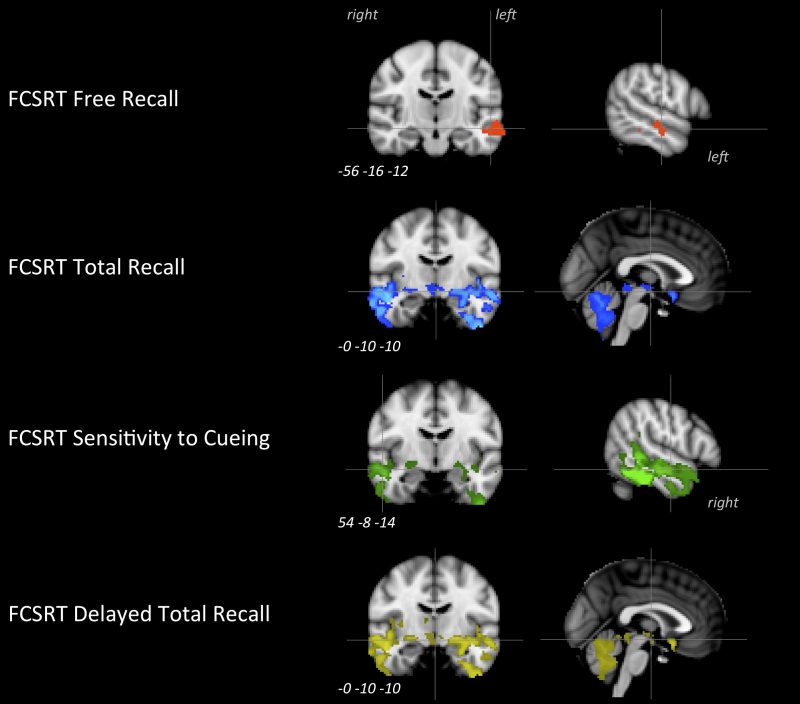Abstract:
Although a growing body of work has shown that behavioral variant frontotemporal dementia (bvFTD) could present with severe amnesia in approximately half of cases, memory assessment is currently the clinical standard to distinguish bvFTD from Alzheimer’s disease (AD). Thus, the concept of “relatively preserved episodic memory” in bvFTD remains the basis of its clinical distinction from AD and a criterion for bvFTD’s diagnosis. This view is supported by the idea that bvFTD is not characterized by genuine amnesia and hippocampal degeneration, by contrast to AD. In this multicenter study, we aimed to investigate the neural correlates of memory performance in bvFTD as assessed by the Free and Cued Selective Reminding Test (FCSRT). Imaging explorations followed a two-step procedure, first relying on a visual rating of atrophy of 35 bvFTD and 34 AD patients’ MRI, contrasted with 29 controls; and then using voxel-based morphometry (VBM) in a subset of bvFTD patients. Results showed that 43% of bvFTD patients presented with a genuine amnesia. Data-driven analysis on visual rating data showed that, in bvFTD, memory recall & storage performances were significantly predicted by atrophy in rostral prefrontal and hippocampal/perihippocampal regions, similar to mild AD. VBM results in bvFTD (pFWE<0.05) showed similar prefrontal and hippocampal regions in addition to striatal and lateral temporal involvement. Our findings showed the involvement of prefrontal as well as medial/lateral temporal atrophy in memory deficits of bvFTD patients. This contradicts the common view that only frontal deficits explain memory impairment in this disease and plead for an updated view on memory dysfunctions in bvFTD.


